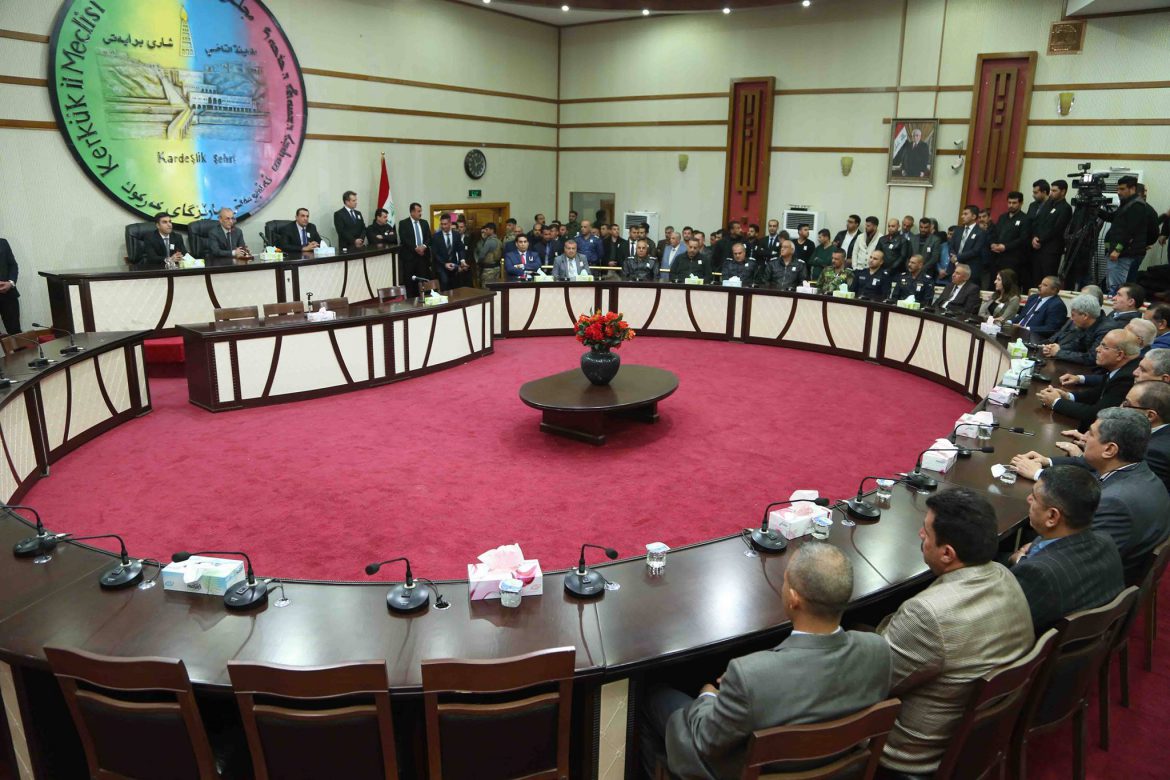Washington Kurdish Institute
On September 14, 2017, Iraq’s parliament voted to dismiss Kirkuk Governor Dr. Najmaldin Karim, a Kurd and native of Kirkuk city, from his post – a position he has held since his election by the Kirkuk Provincial Council in April 2011. The Iraqi central government indeed has no power to dismiss the governor of the Kirkuk province, and its track record concerning the province over the past decade and a half is one characterized by, at best, neglect, and quite often hostility to the people of the province, and to the very principle of democracy within the province.
In 2013, prior to the invasion of the ISIS terror organization, the Iraqi central government stopped providing Kirkuk with its federal budget allocation and oil share, in effect starving the province as it still struggled to rebuild following the bloody era of the Saddam Hussein regime, which ended one decade just a decade prior.
When the ISIS terrorist organization overran Mosul and parts of the Kirkuk province in June 2014, the Iraqi security forces fled their posts, leaving the province and city of Kirkuk vulnerable to a massacre. This security vacuum was filled by the Kurdish Peshmerga forces with assistance from allied forces, who protect the city to this day even as the Hawija district, southwest of Kirkuk city, remains under the control of ISIS. Following the commencement of this new security crisis, the Iraqi central government continued to withhold the federal budget allocation from Kirkuk, despite Kirkuk hosting over half a million internally displaced Iraqis of various ethnicities and religions who fled from the genocidal threat of ISIS.
The Iraqi central government’s aggressive approach to Kirkuk began soon after the establishment of what many hoped would be a new, democratic Iraq for all Iraqis following the removal of the dictator Saddam Hussein and the end of the reign of the Arab nationalist Ba’ath Party in April 2003. While Article 140 of the Iraqi constitution mandated a normalization of the situation of the Kirkuk province following decades of being targeted by waves of Arabization under various regimes, no such efforts have been initiated.
With respect to the exercise of democracy in Kirkuk, the Iraqi central government has prevented Kirkuk from holding provincial elections since 2005. Over a decade has passed since the people of Kirkuk have been allowed to choose their own local democratic representation, despite repeated demands by Kirkuk’s governor and other local political leaders. Kirkuk was nonetheless permitted to participate in Iraq’s most recent general (parliamentary) elections in 2014. In these elections, Kirkuk’s current governor, Dr. Najmaldin Karim, ran as a candidate during the 2014 general elections, and received 150,084 votes, over 110,000 more than the second most successful parliamentary candidate receiving the support of many Kurds and non-Kurds alike. Despite his election to parliament, Dr. Karim chose to remain in his post as governor.
After a decade and a half of neglecting and, indeed, persecuting the people of Kirkuk – going so far as to starve the province and prevent the people from expressing their will in local elections, the Iraqi central government has no right to suddenly take on the role of guardian of Kirkuk and protector of democracy by illegally moving to dismiss the province’s governor, who was both properly elected to his post by the Provincial Council 6 years ago, and was also strongly supported by all of Kirkuk’s components in the most recent general elections.

